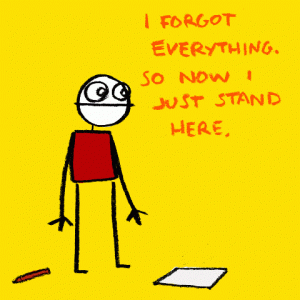
How eBooks reduce stress & lighten backpacks
Demands on modern students are overwhelming. There are schedules, extracurriculars and group projects to manage. There are external constraints, like small lockers, outdated textbooks and individual challenges students bring to school every day. There is so much to track, balance and worry about, and this huge mental load affects focus and learning.
An ideal whole-child education goes beyond academics. While students need to learn responsibility and executive management skills, reducing those demands also reduces stress and allows students to focus more deeply on their learning. Access to a convenient digital learning experience provides academic rigor while taking the extra load off both their minds and bodies. And for schools? Digital learning with eBooks and audiobooks takes a load off the budget.
Mind

Forgetfulness and organization is a struggle for many students at every grade level. Teachers struggle to impart executive functioning skills in busy and fast-paced classrooms, and it’s easy for some students to fall behind. The Centers for Disease Control and Prevention posit that 11 percent of American children ages 4-17 suffer from ADHD. Whether or not all of these 6.4 million students qualify for an IEP, they often need extra support to be successful. With the 24/7 instant access of eBooks and audiobooks, there’s no book to return, no book to forget in your locker. Exportable notes and highlights travel with a student’s account, even after the book has been returned, so there’s no worry over a lost notebook.
Body

eBooks and audiobooks put more than a busy mind at ease. Digital reading is easier on growing bodies, too. On average, 6th graders carry backpacks weighing more than 18 pounds, although some backpacks weigh as much as 30 pounds. The American Academy of Pediatrics recommends that a child’s backpack weigh no more than 10-20 percent of a child’s weight. A 60-pound child in elementary school should carry a back
weighing less than 12 pounds. Books are the heaviest items in any backpack, causing students to bend and hunch. If they are hunched over an eBook instead, they can learn about their anatomy and bone composition rather than compromise it.
Budget

Without traditional books to be lost, there’s nothing to replace, repair or otherwise maintain. Wear and tear will eventually put every book out to pasture, and replacement of lost or destroyed books is costly for districts. Recent teacher protests have shone a spotlight on state funding problems, of which textbooks are a serious casualty.
Outdated textbooks are the real problem. Old textbooks with out-of-date theories and data stunts science instruction. Older library collections might include a disproportionate number of racially and culturally insensitive books. Offering students eBooks and audiobooks for both leisure reading and curriculum non-fiction makes the most of your technology investment, and makes sure students are learning the most correct, current and relevant information.
1 Comment
Comments are closed.
Browse blog and media articles
Public Library Training
K-12 Library Training
[…] Patti Carlyle, May 30, 2018, first appearing on OverDrive […]